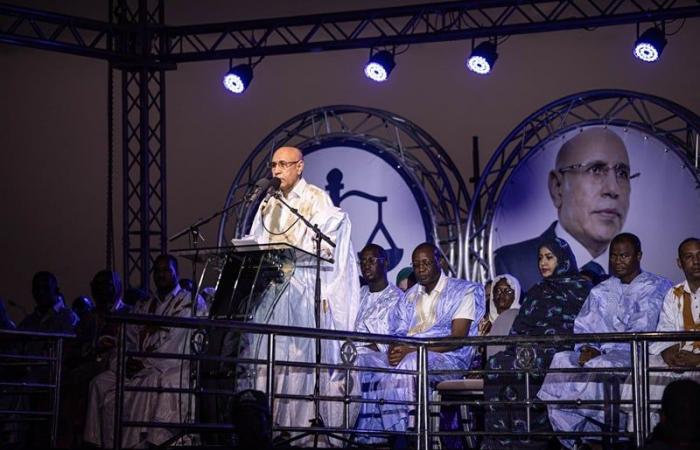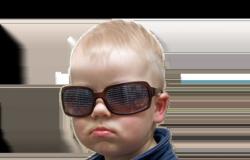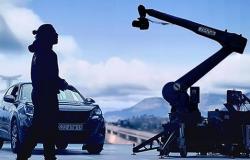Mauritanians began voting on Saturday to choose between change or continuity embodied by outgoing President Mohamed Ould Cheikh El Ghazouani, who has succeeded in containing the spread of jihadism unlike his Sahelian neighbors.
Facing him, six candidates are standing in the ballot and promising the first real democratic change in this vast desert country of around 4.9 million inhabitants which experienced a multitude of coups d’état from 1978 to 2008, before living in 2019 its first transition between two elected presidents since independence from France.
The results should begin to fall on Saturday evening and be officially announced during the day of Sunday or Monday.
In Nouakchott the capital, two small files of voters formed in front of a school in the city center before the start of the vote, scheduled from 07:00 GMT to 19:00 GMT, noted an AFP journalist.
Women and men queue separately in this Islamic Republic. Then they check on a single ballot the name of one of the candidates, numbered and illustrated with a symbol (scales, lion, horse, tea, cattle) before depositing their vote in a chained ballot box. An insulator, a green curtain held by a cord, is located at the back of the room.
“I came to fulfill my civic duty to complete the democratic process that began several decades ago,” Mohamed Salem M’Seika, 50, told AFP. Another voter, Kertouma Baba, 26, “wants progress in education and for young people.”
Observers believe that Ghazouani has a chance of winning in the first round. If there is a second round, it will take place on July 14.
The campaign was generally peaceful.
The outgoing president presents himself as the guarantor of the stability of this country which has not experienced an attack on its soil since 2011 while they adhere to nearby Mali and the Sahel.
Since the start of the campaign, which saw him crisscross all regions of the country, the head of state has promised “a resounding victory in the first round.”
His image, with the slogan “the safe choice”, is displayed everywhere in Nouakchott and throughout the country, and contrasts with the means deployed by the other candidates. The tents where the activists meet to campaign in a festive manner are almost all erected in his honor.
Ghazouani helped the most deprived and young people in his priority projects. In Mauritania, people under 35, who represent more than 70% of the population, are increasingly leaving for Europe or the United States, driven by the hope of having a better life.
After a first term driven by the Covid-19 epidemic and the consequences of the war in Ukraine, Mr. Ghazouani hopes to reform further during a second term thanks to favorable economic prospects.
Over the period 2024-2026, growth should be 4.9% on average (3.1% per capita), thanks to the launch of gas production in the second half of 2024, estimates the World Bank. Inflation fell from a peak of 9.5% in 2022 to 5% in 2023, and is expected to continue to decline to reach 2.5% in 2024.
The president’s two main competitors are human rights activist Biram Dah Abeid, who came second in the last two presidential elections, and the president of the Islamist Tewassoul party, Hamadi Ould Sidi El Mokhtar, the main opposition force in the National Assembly.
Both advocate radical change, and profound reform of education and justice.
They also warned of fraud after denouncing a “unilateral election” and accusing the Independent National Electoral Commission (Ceni) of “doing nothing to ensure that it runs smoothly.”
The opposition had already strongly contested the legislative elections won by the government a year ago.
Few international observers have travelled to Mauritania. The African Union has sent 27 short-term observers. The European Union has not deployed a mission, but has sent three electoral experts.
The Mauritanian government has set up a national observatory responsible for monitoring the election, which the opposition denounces as an instrument of vote manipulation.






